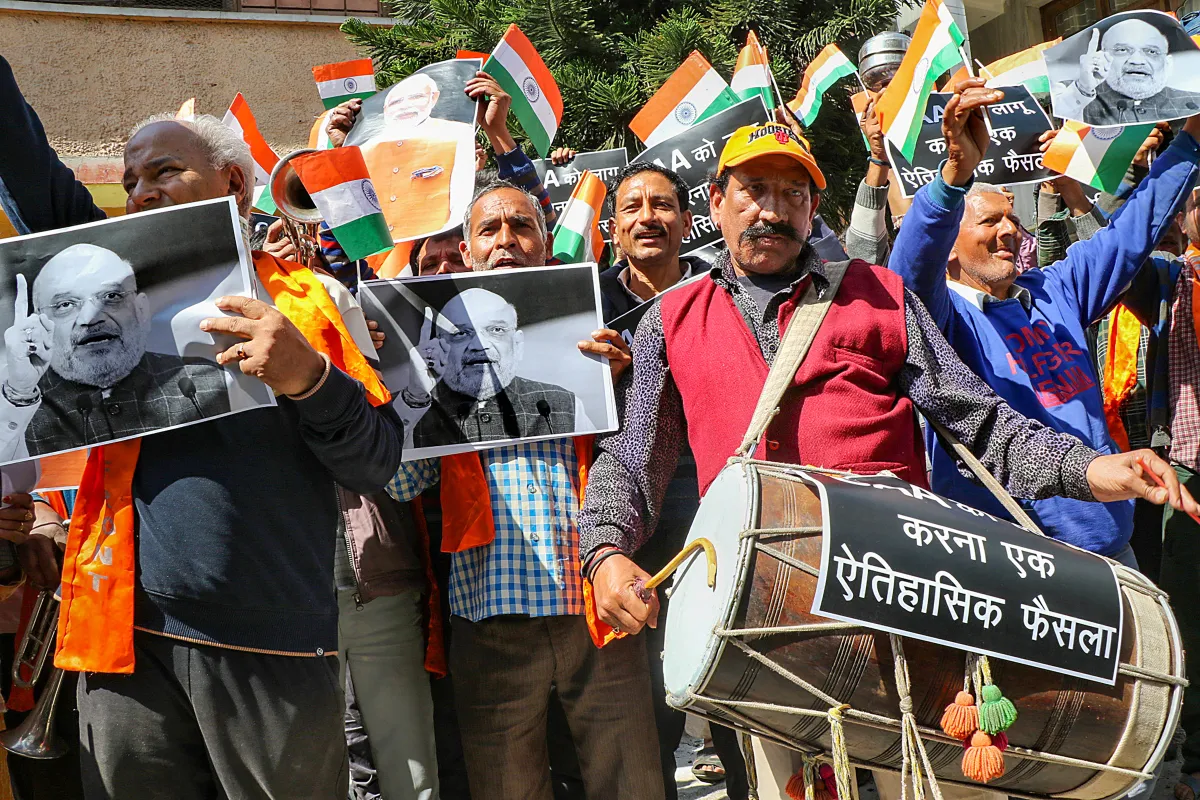The rules for implementation of the contentious Citizenship (Amendment) Act (CAA) 2019 were notified on March 11, four years after being passed, thus paving the way for granting citizenship to undocumented non-Muslim migrants from Pakistan, Bangladesh and Afghanistan, according to officials.
With the CAA rules being issued, the Modi government will now start granting Indian nationality to persecuted non-Muslim migrants from Bangladesh, Pakistan and Afghanistan who came to India till December 31, 2014.
These include Hindus, Sikhs, Jains, Buddhists, Parsis and Christians.
Union Home Minister Amit Shah assured minorities that the Citizenship (Amendment) Act is not meant to snatch anyone's citizenship. Stoutly defending CAA-2019 in the face of fresh opposition criticism, Shah accused AIMIM president Asaduddin Owaisi, Congress president Mallikarjun Kharge and party leader Rahul Gandhi of lying that minorities will lose citizenship due to the new law and also indulging in vote-bank politics. The Centre has also prepared a portal for the convenience of the applicants.
Misconceptions about Citizenship Amendment Act
- This is the law to give citizenship, CAA will not take away citizenship of any Indian citizen, irrespective of religion.
- This Act is only for those who have suffered persecution for years and have no other shelter in the world except India.
- Persons eligible under CAA-2019 can apply for citizenship on this portal
Myth Busters
- Citizenship (Amendment) Act 2019 enables persecuted minorities from neighboring countries like Afghanistan, Pakistan & Bangladesh to seek Indian citizenship who had sought shelter in India before 31st December 2014, due to religious persecution
- It includes 6 minority communities - Hindus, Sikhs, Buddhists, Jains, Parsis and Christians
- Removes legal barriers to rehabilitation and citizenship
- It will give a dignified life to refugees who have suffered for decades
- Citizenship rights will protect their cultural, linguistic, and social identity
- It will also ensure economic, commercial, free movement, and property purchase rights
Who were given Indian citizenship
According to the annual report of the Ministry of Home Affairs for 2021-22, from April 1, 2021, to December 31, 2021, a total of 1,414 foreigners belonging to these non-Muslim minority communities from the three countries were given Indian citizenship by registration or naturalisation under the Citizenship Act, 1955.
The nine states where Indian citizenship by registration or naturalisation is given under the Citizenship Act, 1955 to non-Muslim minorities from Pakistan, Bangladesh and Afghanistan are Gujarat, Rajasthan, Chhattisgarh, Haryana, Punjab, Madhya Pradesh, Uttar Pradesh, Delhi and Maharashtra.

